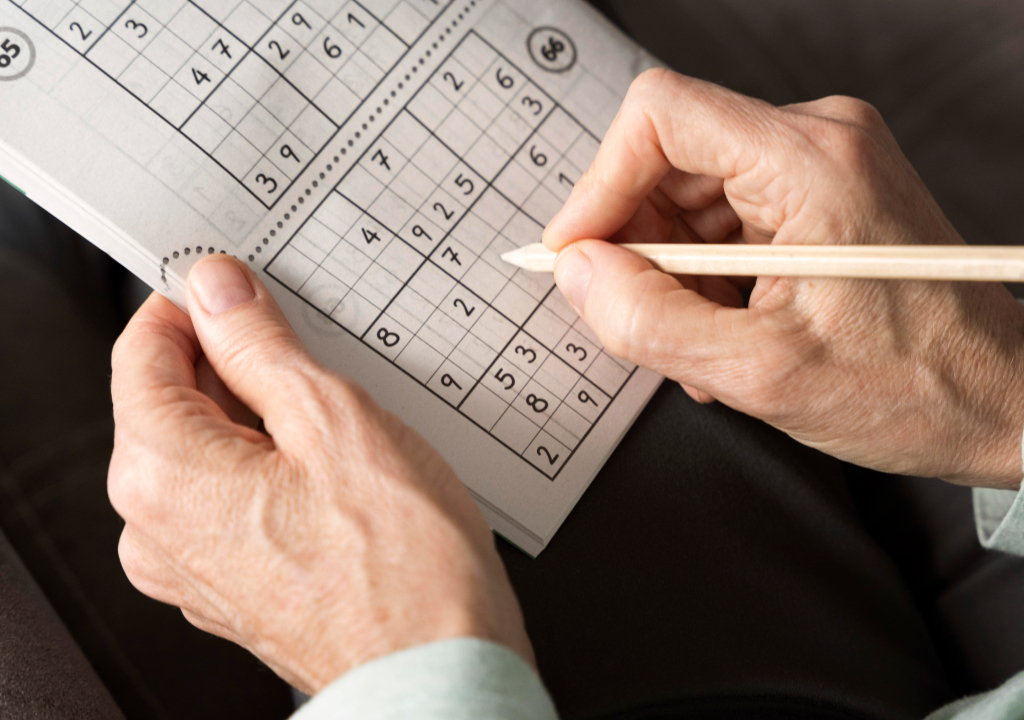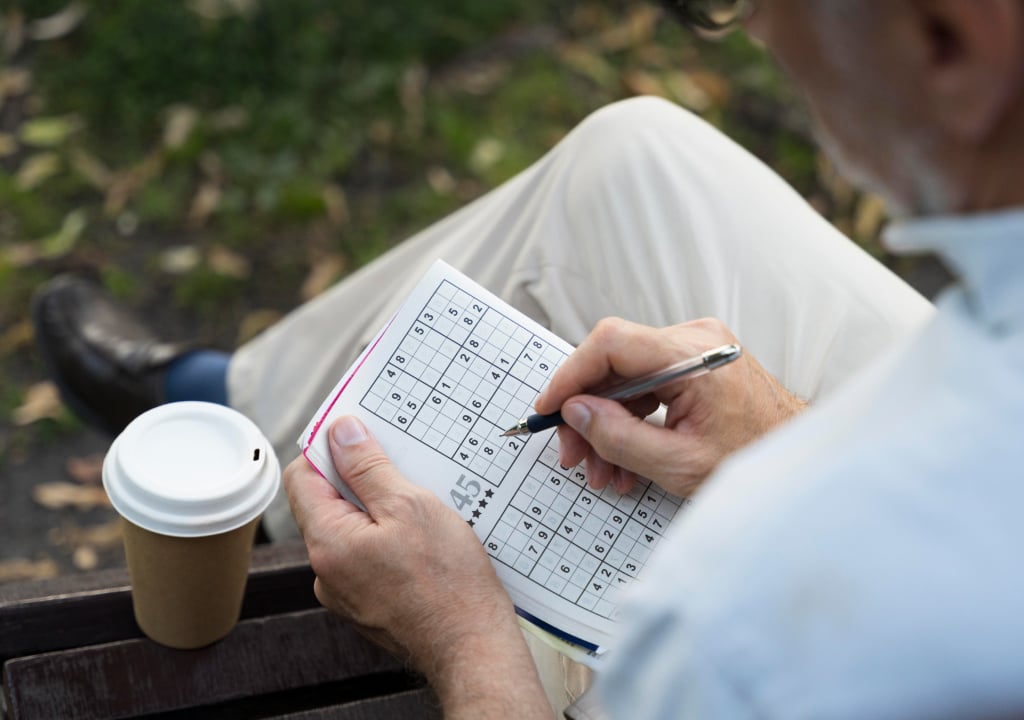That little puzzle game you enjoy with your morning coffee is doing far more than passing the time. Research shows that a daily five minute habit, like solving “7 Little Words,” can serve as a powerful workout for your brain. It sharpens your focus, builds mental agility, and creates a positive rhythm that can brighten your entire day.
A quick look at the benefits of this simple habit
It’s easy to think of these short games as a simple way to fill time while waiting in line or during a quick break, but they offer far more than a distraction. They’re a form of focused play that actively engages your mind in a way passive activities can’t. By setting aside just a few minutes, you’re not just passing the time you’re intentionally choosing to give your brain a quick, rewarding boost that can set the stage for better thinking throughout the day. This simple habit is a small investment with a surprising return on your mental well being.
Here is a closer look at the fascinating science behind this simple habit:
-
How that wonderful “Aha!” moment of solving a clue feels like a little reward for your brain.
-
Why a short daily puzzle acts as genuine training for your mental flexibility.
-
How small, steady habits build a stronger and more resilient brain.
-
Why beginning your day with a quick win can shift your mood and mindset.
-
The role of dopamine, habit loops, and brain plasticity in making puzzles so effective.
-
How these short sprints of thinking can fuel creativity, focus, and stress relief.
That Little Spark of Joy Is Brain Science
Think about the spark you feel when a tricky word finally comes together. That sensation, often called the “Aha!” or “Eureka!” moment, is not just a passing mood. It is a neurological event. Studies show that during moments of sudden insight, the brain releases a burst of dopamine the very same chemical linked to pleasure, motivation, and reward.
This release does more than make you smile. It signals your brain that the activity is worthwhile and worth repeating. Over time, this reward cycle creates a self reinforcing habit. Short daily puzzles like 7 Little Words deliver these small bursts regularly, which makes the practice easy to sustain. Instead of waiting weeks for one big payoff, you collect daily victories that keep you coming back. Your brain, in essence, is training itself to seek out and enjoy mental challenges.
This is the principle of neuroplasticity in action. Your brain isn’t a static organ; it’s a dynamic, ever changing landscape of neural connections. Each time you complete a puzzle, you are strengthening the pathways associated with problem solving, pattern recognition, and memory recall. This consistent stimulation reinforces these connections, making your brain literally more efficient at these tasks over time. It’s a small but powerful way to actively shape your mind’s architecture for the better.
A Mental Sprint Instead of a Marathon
What makes a quick puzzle different from more traditional challenges like crosswords? The key is speed and variety. A crossword feels like a marathon slow, deliberate, and sometimes frustrating. 7 Little Words feels like a set of sprints. Your brain cycles through distinct steps in quick succession:
-
Read the clue and grasp its meaning.
-
Scan the letters and spot possible combinations.
-
Test different arrangements to form a word.
-
Verify if it matches the clue.
This entire process happens in seconds, repeated several times. By constantly shifting between different ways of thinking, your brain practices what scientists call cognitive agility the ability to adapt quickly and shift focus with ease. This isn’t just about vocabulary; it’s about keeping the mind nimble, much like interval training strengthens the body.
This constant mental shifting is a fundamental part of what makes these puzzles so effective. Think of it as a low stakes exercise in attentional control. You’re training your brain to ignore distractions and focus on the task at hand, then smoothly transition to the next one. In a world full of notifications and endless digital noise, this skill is more valuable than ever. By mastering the mini sprints of a daily puzzle, you are actively building a more resilient and focused mind, preparing it for the multi tasking demands of a busy work day or the mental shifts required to navigate a complex conversation.
How a Daily Puzzle Builds a Stronger Brain

The secret to real results lies in consistency. Just as gentle daily exercise is more effective for long term health than occasional intense workouts, short and regular mental stimulation builds what experts call cognitive reserve. This reserve acts like a safety net, protecting your brain against decline and supporting clear thinking under stress.
Here are some of the key skills you strengthen each time you play:
|
Cognitive Skill |
How 7 Little Words Trains It |
Real World Benefit |
|
Working Memory |
Holding the clue in mind while testing letter combinations. |
Improves your ability to follow conversations and complete multi step tasks. |
|
Mental Agility |
Switching rapidly between language, logic, and visual recognition. |
Helps you shift smoothly between projects and handle interruptions. |
|
Lexical Access |
Training your brain to find the right word quickly. |
Reduces frustrating “tip of the tongue” pauses in daily conversations. |
|
Problem Solving |
Each clue acts as a mini puzzle that demands creative connections. |
Strengthens both analytical and imaginative thinking. |
|
Focus and Attention |
Concentrating intensely for short bursts. |
Makes it easier to resist distractions and stay productive. |
|
Stress Relief |
Playful engagement relaxes the nervous system. |
Provides calmness and emotional balance in a busy day. |
Researchers have found that people who regularly challenge their minds with puzzles, games, or reading often maintain healthier brain structures and stronger memory as they age. In fact, studies suggest that daily challenges like crosswords can play a significant role in delaying the symptoms of dementia. This is why a daily puzzle is more than a pastime, it is an investment in long-term mental health.
The concept of cognitive reserve is particularly powerful. It’s not about being a genius; it’s about building a buffer against the natural process of aging. Every time you engage in a mentally stimulating activity, you’re adding to this reserve. It’s like putting money in a savings account that you can draw on later in life. This simple, enjoyable habit is a proactive step you can take right now to maintain your cognitive function and clarity for years to come.
The Joy of a Daily Habit
Making this puzzle a daily habit feels great, and it does more than just help your brain. When you start your day with a small success, it makes you feel more confident and helps the rest of your day go better.
It’s also a great way to reset your mood when you feel stressed. That good feeling you get from solving a puzzle makes you feel more positive and ready for other challenges. It helps you stop doubting yourself and feel like you’re moving forward, making you mentally stronger in all parts of your life.
A Small Puzzle with a Big Impact
That simple game on your phone is more than casual fun. It is a proven way to keep your mind sharper, more flexible, and more resilient. By giving just five minutes a day, you are not only solving a puzzle you are shaping habits of attention, creativity, and perseverance.
Think of it as mental hygiene, much like brushing your teeth. Small daily rituals add up, building long lasting benefits. With every clue solved, you are strengthening your memory, exercising your problem solving muscles, and investing in a healthier brain.
So tomorrow morning, as you take that first sip of coffee and open the game, remember this: you are not wasting time. You are giving your mind the kind of workout it thrives on, one joyful puzzle at a time
For more information on the science behind this powerful habit, read the full article: The 5 Minute Brain Workout Hiding on Your Phone.
And if you ever get stuck on a tricky clue, you can always find the answers you need here: 7 Little Words Daily Puzzles Answers.

Ashley Rosa is a freelance writer and blogger. As writing is her passion that why she loves to write articles related to the latest trends in technology and sometimes on health-tech as well. She is crazy about chocolates. You can find her at twitter: @ashrosa2.




![‘Jay Kelly’ Review – Noah Baumbach Makes A Case For The Magic Of Movie Stardom [NYFF 2025] ‘Jay Kelly’ Review – Noah Baumbach Makes A Case For The Magic Of Movie Stardom [NYFF 2025]](https://cdn.geekvibesnation.com/wp-media-folder-geek-vibes-nation/wp-content/uploads/2025/11/Jay-Kelly-JKELLY_20240523_15320_C2_R-300x180.jpg)

